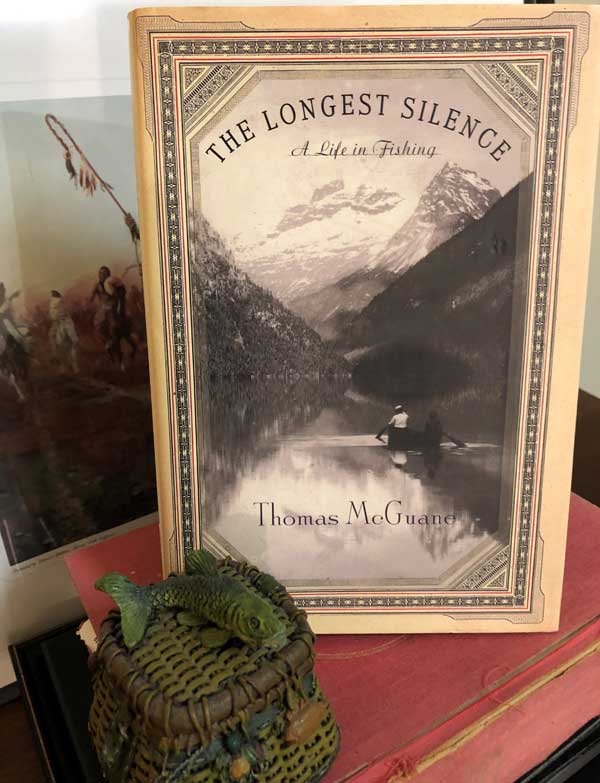Reviewed by Greg Tinsley

The anesthesia of fishing is among the most well-known and effective of all of the mental-health therapies. Together with sporadic bolts of pure adrenaline, the intensities of fishing – for thick bluegills or marlin – induces a fine sort of amnesia.
For the sake of additional redundancy, with a tip of the sombrero to the great fisherman and larger-than-life philosopher Henry David Thoreau – fishing is a really good way to find inner peace.
Lucky for us, the master observer and literary genius, Thomas McGuane, loves fishing in wild places – skillsets and adorations that produced one pure fishing book from him in 1999: The Longest Silence – A Life in Fishing. Many of us came to Silence much later than we should have. (You don’t know what you don’t know.) In an effort to catch up, I’ve read it 2.7 times over the past several years. At least once more, while there is time, if I may read nothing else, now seems a terrific idea.
McGuane, the writer:
Following a blue-ribbon education to the creation of literature, his debut novel, The Sporting Club (1969), did not escape the notice of national booksellers or their most ravenous clients. Some believe that Ninety-Two in the Shade (1973) is his best known. With no room for coincidence, the protagonist in 92 is a young saltwater fishing guide recently of the Florida Keys, where McGuane, a bona fide tarpon-on-fly pioneer, kept a skiff and a writer’s fish-camp retreat for many years.
During the 1970s, the wicked intellect of McGuane and his handsomeness and his fun-seeking comportment were of Young Hollywood quality. His snap-to expertise on the production of amazing screenplays, including Rancho Deluxe, The Missouri Breaks and Tom Horn, earned him the nickname “Captain Berserko.”
Silence is destination fly-fishing reflection at the magnitude of the American Academy of Arts and Letters, to which McGuane holds membership. Thirty-plus essays across 280 pages, a pro’s pro memorial to the earth, the wind and the fire of crawling, laid-up and tail-up tarpon, permit and bonefish. The treatment is markedly weighted to the rhythmic intrigues of dead drifting flies through the rise forms of glide-holding freshwater trout. However, all of that notwithstanding, it is probably this rock-star linguist’s penchant for humor, and his supreme gift as an illustrator of events and vistas through words alone, which posts The Longest Silence to a place among the very best of all the books that one may ever read.
To close, here is one favorite from this McGuane River of perfect sentences:
The meat bucket was Jim Harrison screaming that his knees were buckling and “He’s got all my line!” on his first hundred-pound tarpon. The meat bucket was Bob Weddell laying his ear to your Hardy reel that a twelve-pound steelhead was making scream, and saying with rapture, “They’re playing our song!”




























